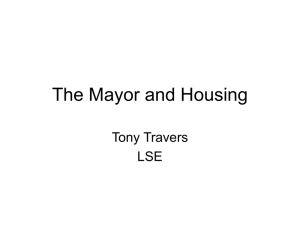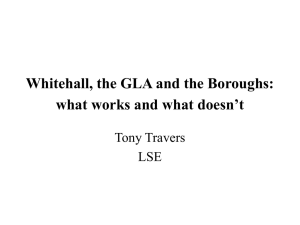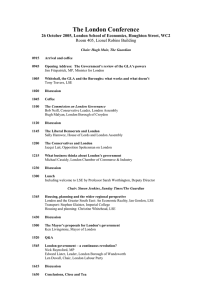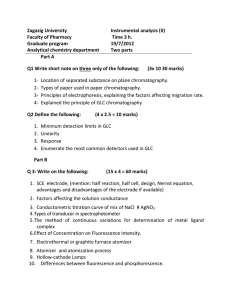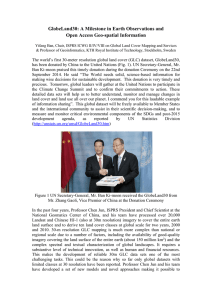The new new government of London Tony Travers LSE
advertisement
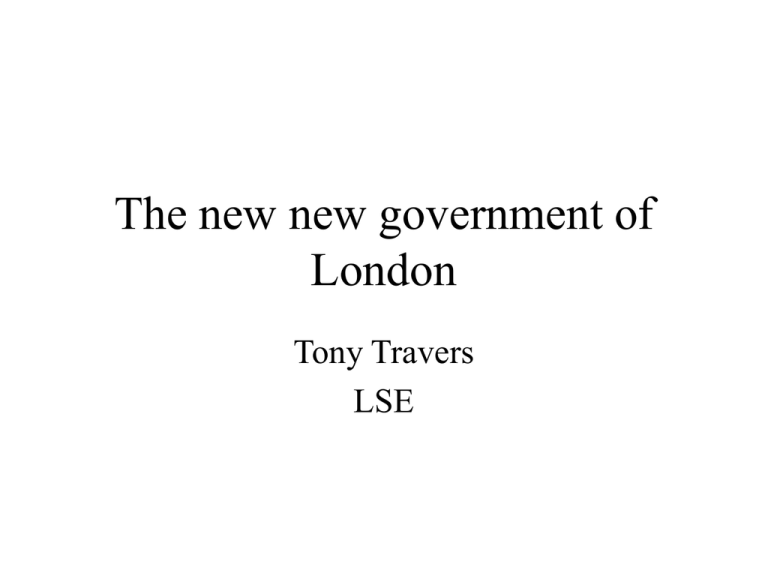
The new new government of London Tony Travers LSE A long and winding road… • 1855, 1888, 1965, 1986 and 2000 • Scale of London has created local and metropolitan interests • also the City of London’s particular position • Political parties have evolved different views about the ‘metropolitan’ • Conservatives often sceptical • Labour/Liberals generally enthusiastic Reform is against this background • Different models of city-wide government have been tried • Joint board/s of local bodies/boroughs – MBW, 1986-2000 ‘Interregnum’ • Powerful ‘core urban’ authority – LCC • ‘City region’ – GLC, GLA • Local vs metropolitan interests GLA more powerful than GLC • Executive mayor has concentrated power in a single individual • as was intended • Powers of GLA greater than GLC? • TfL is a significantly more powerful institution than LT (only with GLC from 1970-84) • MPA powers not granted to GLC • LDA powers probably greater than GLC • GLC stronger in inner London - ILEA Government’s reforms strengthen the GLA • • • • • • • Planning Housing Skills & Training Waste Functional body appointments Powers to make strategies; direct policy 80% of what the Mayor said he wanted? Altering the balance of political power - 1 • DCLG has been more willing to devolve than DFES or DEFRA • similar pattern to when GLA was set up • more comfortable at the ‘regional’ than local level • Overall, slight shift of power away from Whitehall • Belief within government the experiment has worked Altering the balance of political power - 2 • Planning and housing reforms will move power from boroughs to City Hall • ‘Tilting the balance’ from the local to the metropolitan • Mayor will become more powerful than any ‘Greater London’ politician has ever been • Unlikely to be the end of the process…… Consequences • Friction between the Mayor and the boroughs? • if so, could create ‘abolitionist’ movement • as has occurred before • Alternatively, a more powerful ‘London wide’ office capable of changing the city in line with demands of economy, migration, social change Public need to understand reasons for reform • Government and Mayor of London will have to explain why change is taking place • better services? bigger city? • 2008 mayoral election bound to pick up planning and housing issues • Reform of London government could find its way into 2009 election manifestos • The road to reform winds on and on……… The new new government of London Tony Travers LSE
